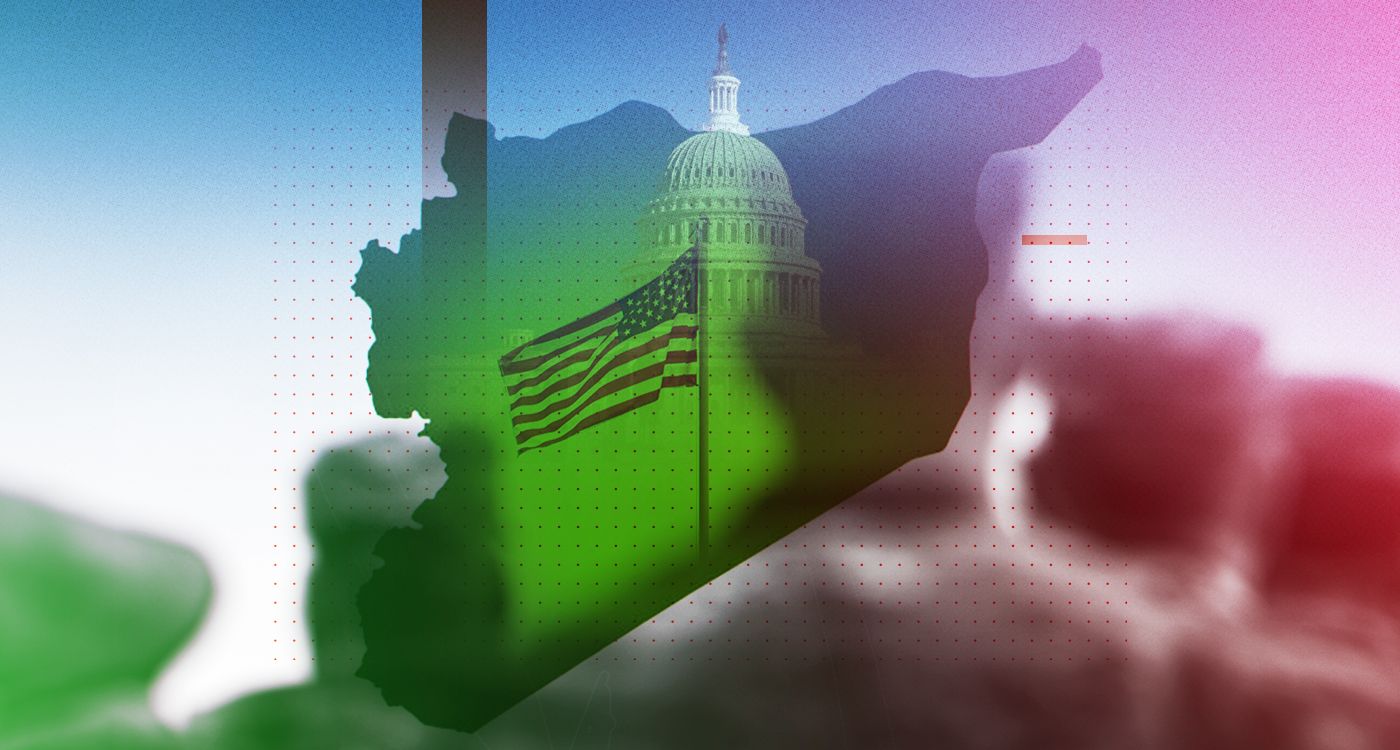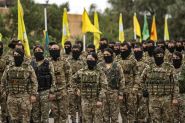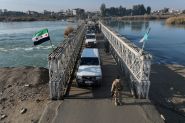- Home
- Middle East
- American Engagement of Syria

©This is Beirut
President Donald Trump's May 15 meeting in Riyadh with Syrian leader Ahmed al-Sharaa and the lifting of sanctions had many Trumpian hallmarks. It was bold. It was unplanned. Its future course is uncharted. It was taken against the advice of his senior foreign policy team. It was the result of encouragement from two American partners with conflicting objectives, President Erdogan of Türkiye and Crown Prince Mohammed bin Salman of Saudi Arabia. They now seem to be left holding the bag of responsibility to make it work, another Trump speciality. After all, this unexpected American move was the result of their advocacy.
A conventional diplomat would have advocated for a gradual, conditional approach to lifting American sanctions. After all, we all want stability and recovery for Syria, but Washington has limited means to influence events. Sanctions were one of them, now spent. One can hope Trump's message and attitude toward the Saudis and Turks is "I did this for you, no strings attached; your honor and reputation are now on the line to make Sharaa deliver." In fairness to Trump, given the nature of Washington today, a conventional approach would have produced a year of debate and indecision and given birth to a molehill – while events in Syria would have taken their own course.
One problem in subcontracting the hard part to Erdogan and MBS is that to Americans, it may sound like those two have overlapping interests in Syria, but they are rivals. MBS, the most significant Arab ruler today, does not want to abandon Syria to the Turks but cannot project military power there. He needed American support to enable the Saudis to apply their primary form of influence, financial and economic tools – not possible given American restrictions on doing any business in Syria. But this is just stage one in the coming Saudi-Turkish contest over Syria.
Sharaa sounds like the sort of Middle Eastern leader who thinks he can make a virtue of his weakness in the face of foreign actors. It is an old story in the Levant. Various external parties – Türkiye, Israel, Russia, Iran, America, and the Saudis – have been playing out their rivalries and testing their limits on Syrian soil for some time already, even under Bashar al-Assad. Now it is Sharaa's turn to deal with it. By cooperating with some, not antagonizing others, he may be buying time to reinforce his own narrow power base. He knows the fragile nature of Syrian society and the highly contingent nature of any claim to rule it. After all, he swept from Idlib to Damascus, crushing Syrian army units like so many empty soda cans, because President Putin of Russia refused to respond to Assad's panic button. If the Russians hadn't been overextended themselves in Ukraine, the situation in Syria might be very different today.
If Lebanon's civil war experience is any lesson, political, financial, and military influence by these external powers is only likely to grow beyond the control of any single Syrian actor, including Sharaa, to the detriment of the Syrian people. These meddling countries will act on the basis of their own short-term interests and the imperatives of their rivalries with each other, rather than any long-term strategy to stabilize Syria, which would benefit all but advantage none.
There are positive developments. Lifting sanctions gives the Syrian people hope and frees up the Gulf states to start turning the Syrian economy back on. Hopefully, that will inspire a reversal in the flow of refugees who have been such a burden on Lebanon, Jordan and Türkiye. Second, Sharaa has shown that despite his "Jolani" nom de guerre, he has no unrealistic ideas about recovering the Golan. Third, the Saudis have a growing stake now in Syrian stability, so they might help Sharaa find a path away from his Salafi base, starting with the arrest and orderly expulsion of foreign fighters in Syria. Fourth, Ankara and the Kurds seem to be finding unexpected grounds to reduce hostility. Fifth, MBS did what no one else did: convince Trump that America has interests in Syria.
The United States should avoid the temptation to do what so often happens with us at these complicated moments: we abandon punitive tools in hope for positive change and leave it to local partners to work out the messy details. For Trump's bold move to work, we should follow it up with sustained engagement at multiple levels – inside Syria, regionally, and internationally. The appointment of the American ambassador to Türkiye, Tom Barrack, as a special envoy for Syria is a good sign in that it suggests someone close to the president will remain focused. He must guard against measures and attitudes that serve Türkiye, not America, and will have to convince sceptics in Riyadh on that score. It is time to send American diplomats back to Syria permanently. Formal diplomatic ties should be held as a condition for if and when Sharaa breaks from his Salafi roots, but meanwhile a number of lower levels of diplomatic engagement exist – a liaison office or interests section – for situations just like this one. We should avoid overcommitments as much as undercommitments, but we should be present, nimble and engaged. It is the best way to press Syria's new leaders to use the opportunity Trump handed them to stabilize their country. Otherwise, Syria is at high risk of becoming another landscape for regional conflict, reopening the door for Iran.
Read more




Comments